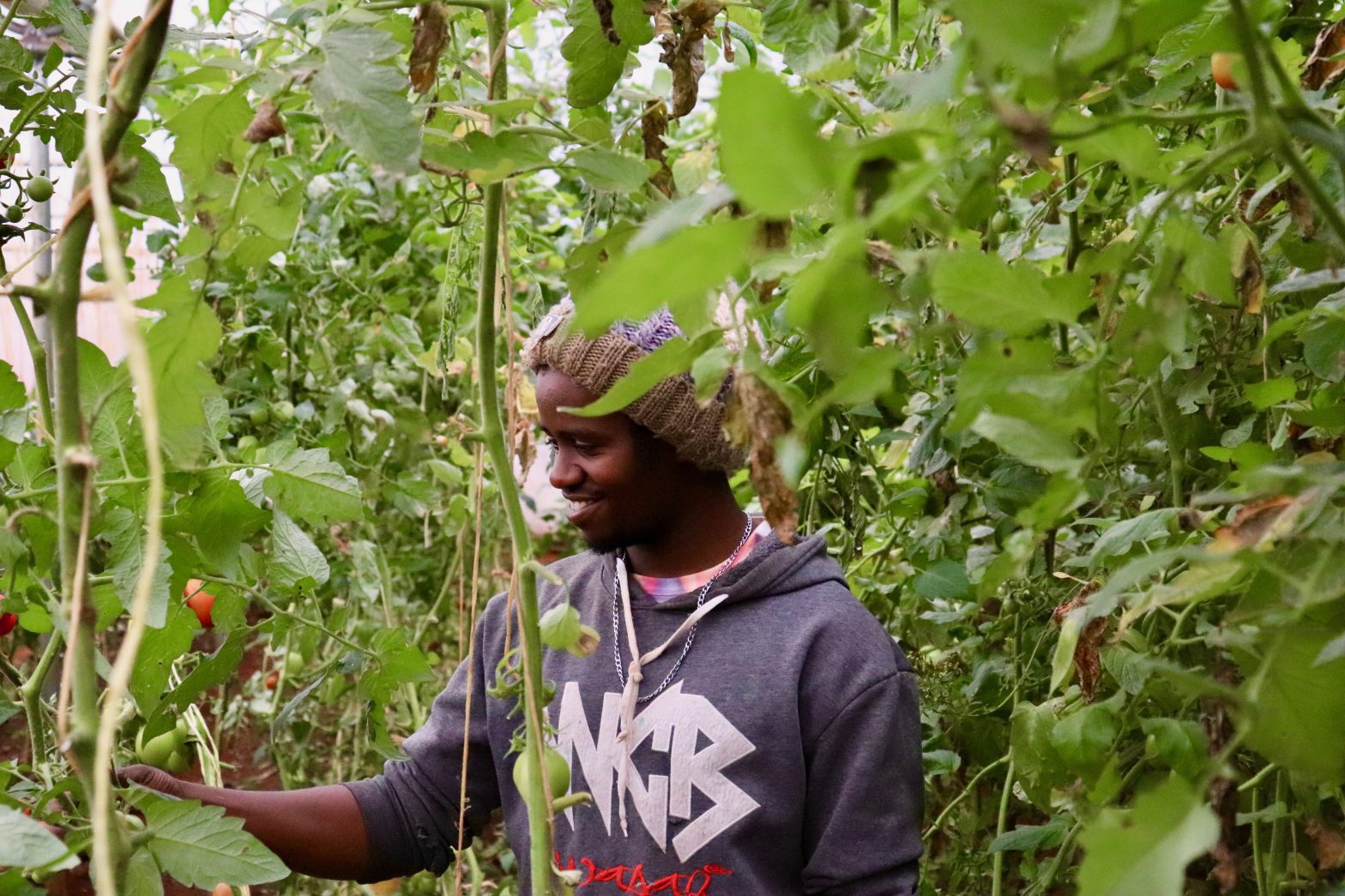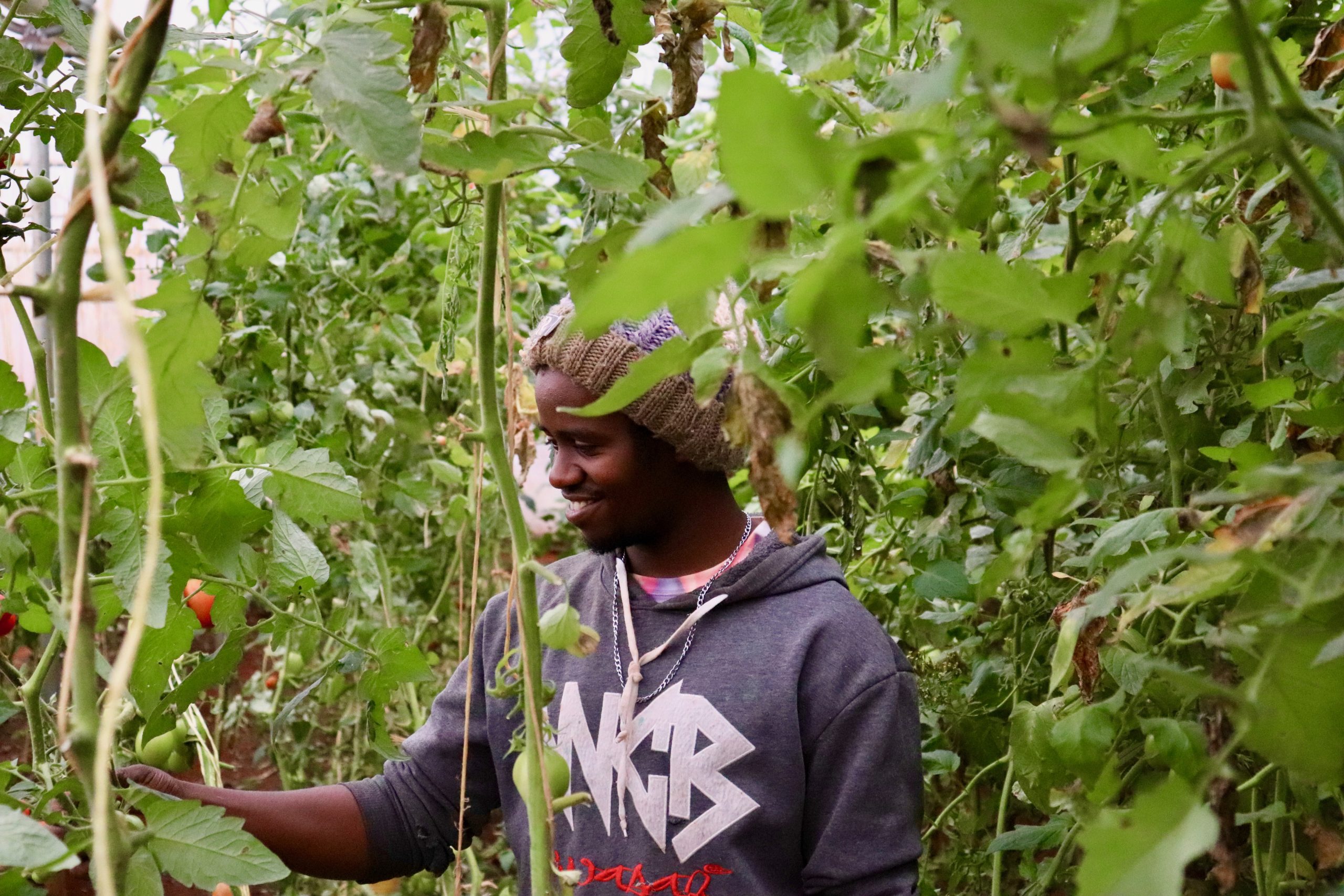
- NEFSALF
- November 6, 2023
Urban agriculture is a great way for people living within a big city such as Nairobi to earn an income and produce healthy and nutritious food for their family and community. However, many farmers are unaware that they are losing money and slowly destroying the environment through some of their farming practices.
Patrick, a young farmer located in Westlands, Nairobi, Kenya was one such individual. Before training with Mazingira Institute, Patrick was growing various vegetables such as cabbage, kale, and many others. To ensure that his crops grew large, he was using chemical fertilizer, simply because he did not know anything else. This forced him to spend a lot of money on inputs for his farm, leading to very low profits. This was such a problem for Patrick that he stopped farming altogether. He did not see urban agriculture as a viable business option.
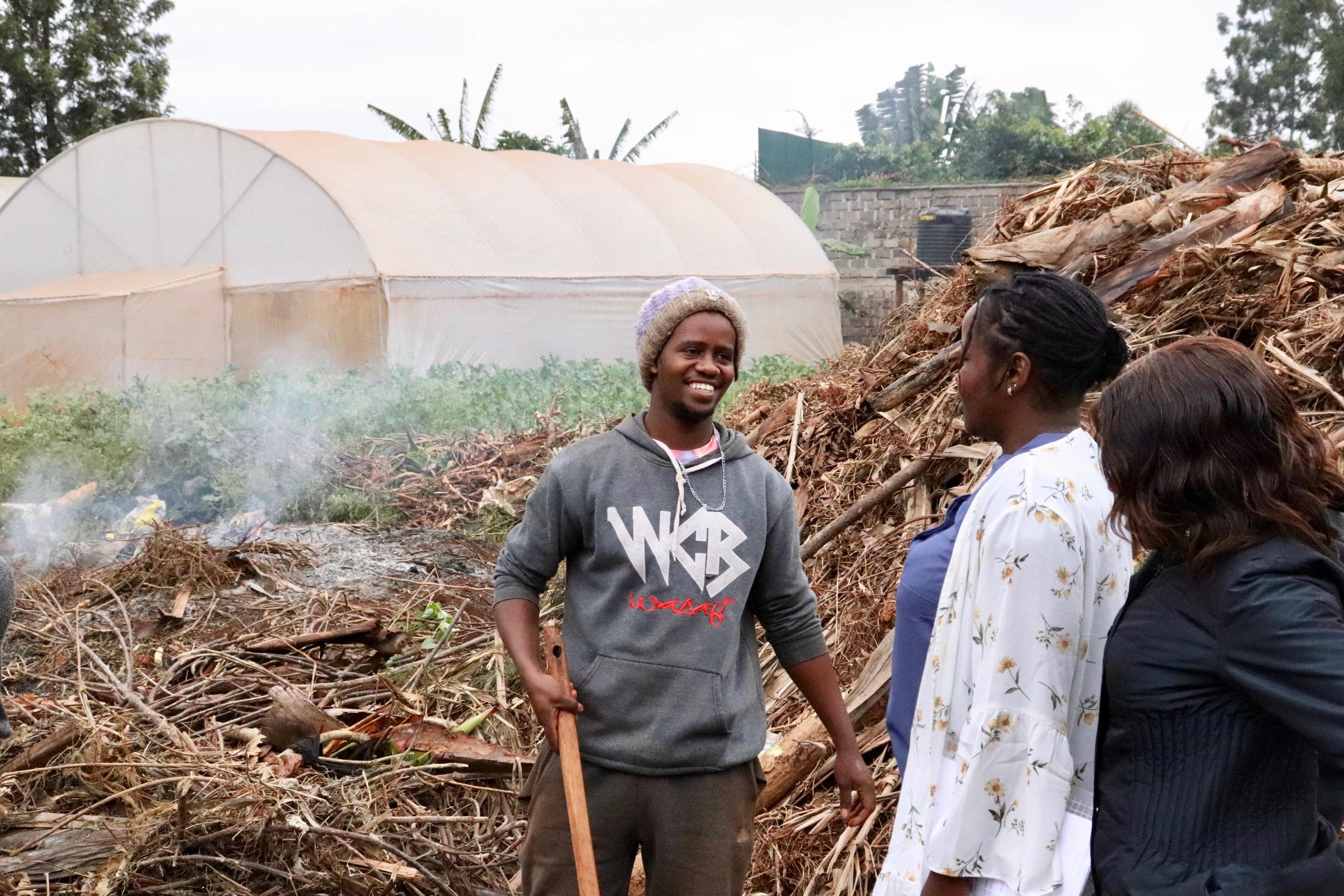
“I was doing farming, but I was not getting enough profit because I did not know, I was not educated to do organic farming. In our country, the cost of chemical products is very high. So, I ended up dropping farming because the chemicals were too expensive.”
Patrick was introduced to us through a Nairobi City County Food, Agriculture and Natural Resources extension officer. He attended our first Gender, Urban Agriculture and Food System (GUAFS) 7-day training program, an activity of the Women’s Spaces Project. The training, attended by 21 trainees (12 female and 9 male) provided awareness of gender-sensitive urban agriculture, increasing the capacity of project beneficiaries to engage equally in urban agriculture and food system activities. Patrick and the rest of the trainees were educated on subjects such as organic crop production and management, livestock production and management, domestic food processing and organic waste management. The topic of organic waste management particularly stood out, “At the training, they taught me how to do organic farming”. He learned that it is possible to make your own organic fertilizer which saves money and still promotes a large crop yield.
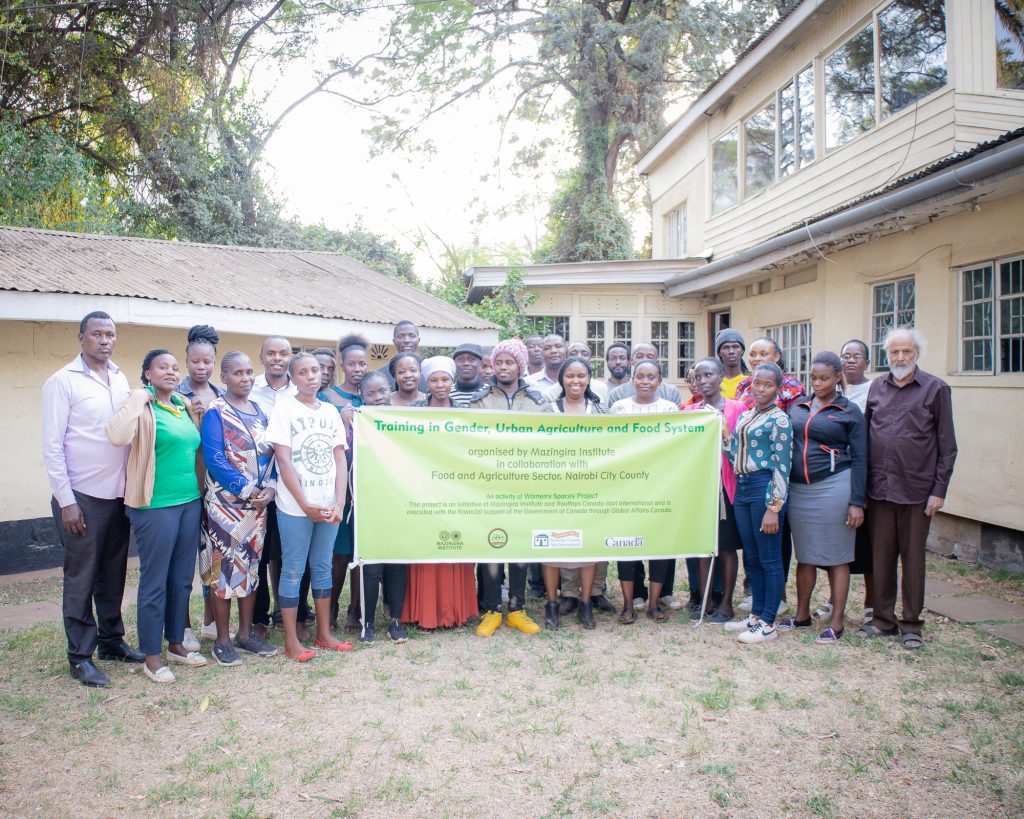
The group of trainees and trainers involved in the February 2023 Gender, Urban Agriculture and Food System training with Patrick, who can be seen in the front with the red hat.
After the training, Patrick returned to farming and now, six months later, he is still working on his farm because of the success he is experiencing. “When I went back home, I started making organic fertilizer and I’ve already got my profit,” explained Patrick. He was so encouraged by this success that he bought some sheep and chickens to add more helpful nutrients to the mixture, which he learned about at the GUAFS training.
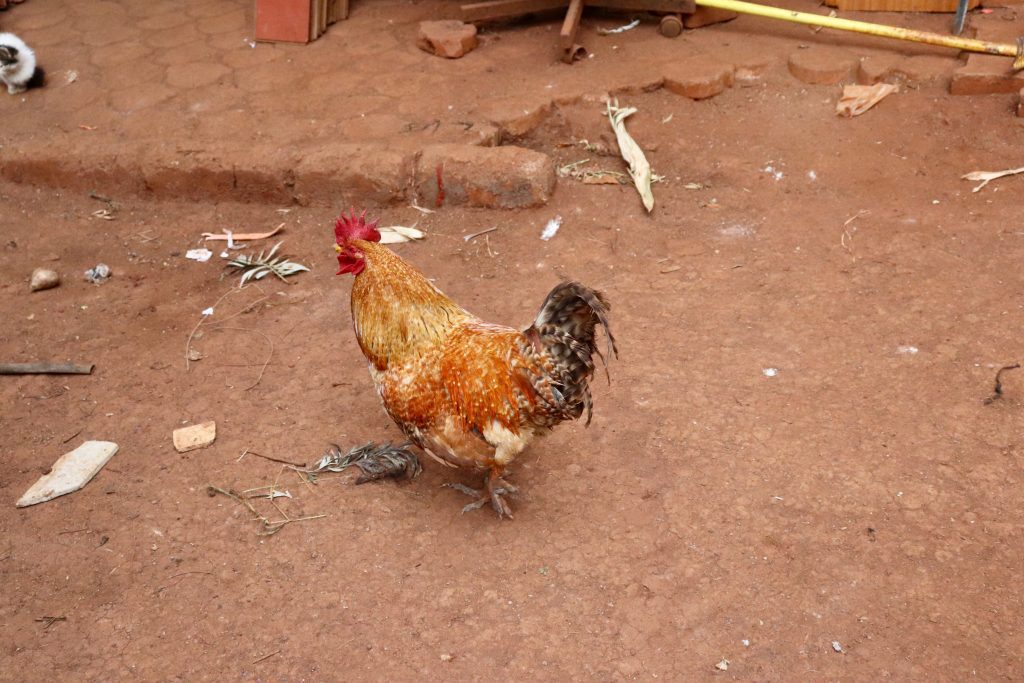
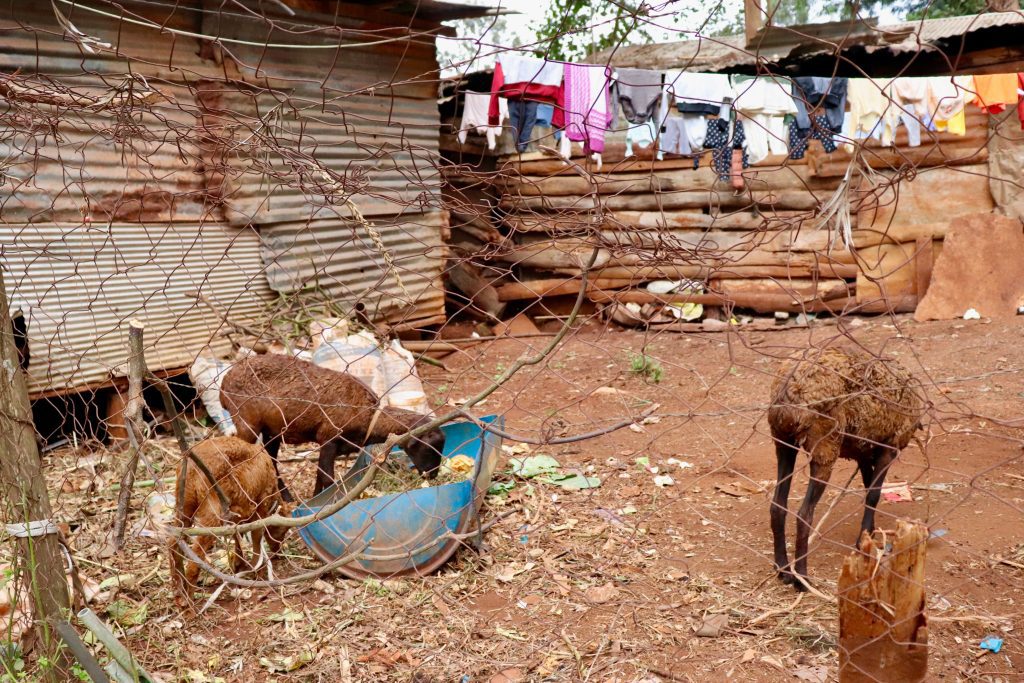
One of the chickens Patrick added to his farm.
Patrick’s new sheep.
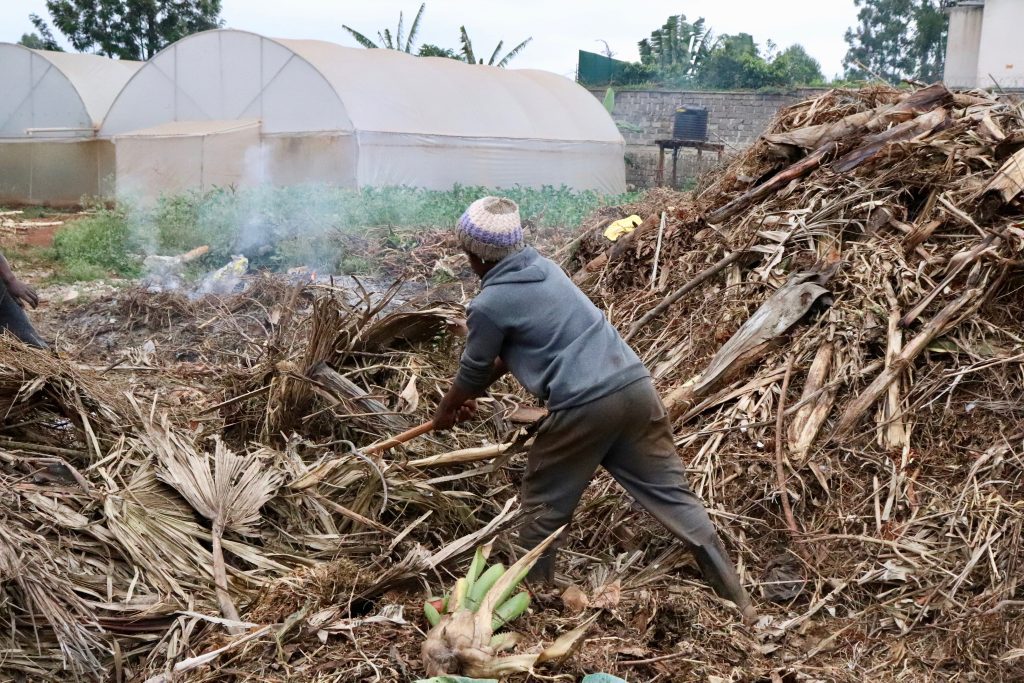
Patrick preparing dry matter for his organic fertilizer.
We are excited to see how Patrick will be able to further grow his farming practice now that he is equipped with more knowledge. This change in Patrick’s farming practice is more environmentally sustainable, protecting soil nutrients, the climate, biodiversity, and much more. This is one thing that the Women’s Spaces Project will continue teaching. Switching from the use of chemical to organic fertilizers is one of the best things an urban farmer can do to protect their income, future crops, and the environment.
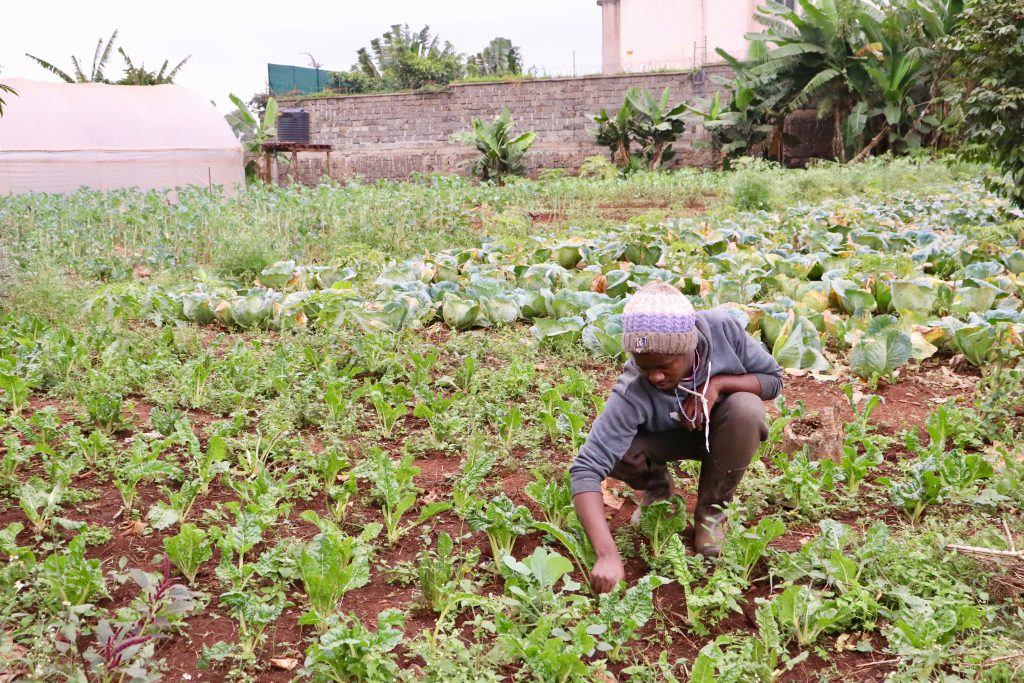
Patrick tending to his vegetables.
Written by Sarah Syptak on November 6, 2023.
The training Patrick was involved in is an activity of the Women’s Spaces Project, an initiative of the Mazingira Institute and Rooftops Canada Abri-International, executed with the financial support of the Government of Canada through Global Affairs Canada.
